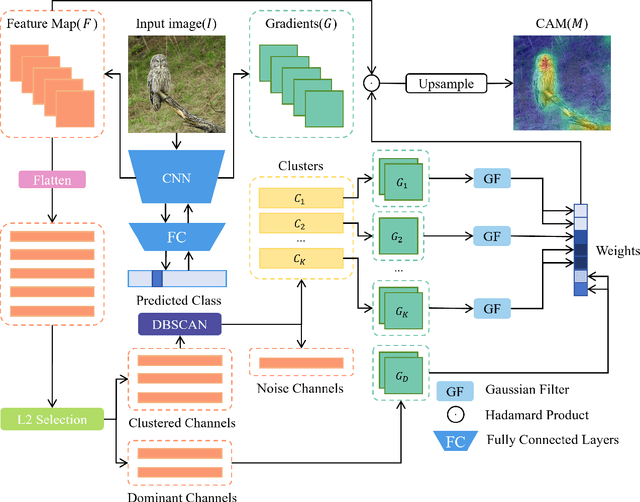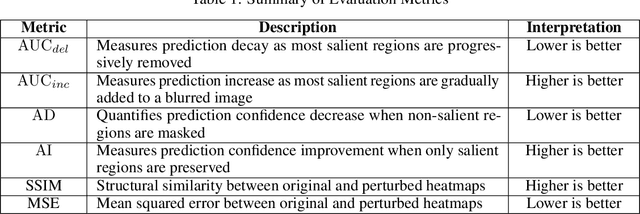CF-CAM: Gradient Perturbation Mitigation and Feature Stabilization for Reliable Interpretability
Paper and Code
Mar 31, 2025



As deep learning continues to advance, the opacity of neural network decision-making remains a critical challenge, limiting trust and applicability in high-stakes domains. Class Activation Mapping (CAM) techniques have emerged as a key approach to visualizing model decisions, yet existing methods face inherent trade-offs. Gradient-based CAM variants suffer from sensitivity to gradient perturbations, leading to unstable and unreliable explanations. Conversely, gradient-free approaches mitigate gradient instability but incur significant computational overhead and inference latency. To address these limitations, we propose Cluster Filter Class Activation Map (CF-CAM), a novel framework that reintroduces gradient-based weighting while enhancing robustness against gradient noise. CF-CAM employs a hierarchical importance weighting strategy to balance discriminative feature preservation and noise elimination. A density-aware channel clustering via Density-Based Spatial Clustering of Applications with Noise (DBSCAN) groups semantically relevant feature channels and discard noise-prone activations. Additionally, cluster-conditioned gradient filtering leverages bilateral filters to refine gradient signals, preserving edge-aware localization while suppressing noise impact. Experiment results demonstrate that CF-CAM achieves superior interpretability performance while maintaining resilience to gradient perturbations, outperforming state-of-the-art CAM methods in faithfulness and robustness. By effectively mitigating gradient instability without excessive computational cost, CF-CAM provides a reliable solution for enhancing the interpretability of deep neural networks in critical applications such as medical diagnosis and autonomous driving.
 Add to Chrome
Add to Chrome Add to Firefox
Add to Firefox Add to Edge
Add to Edge